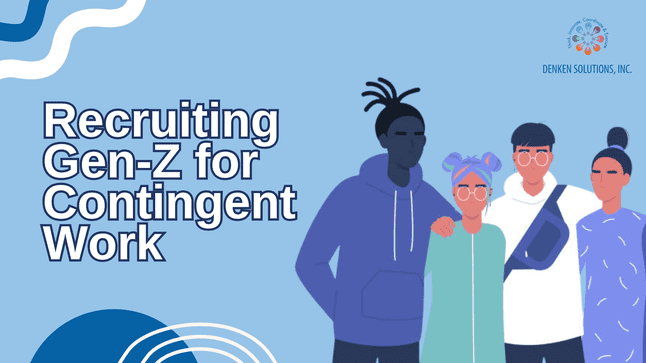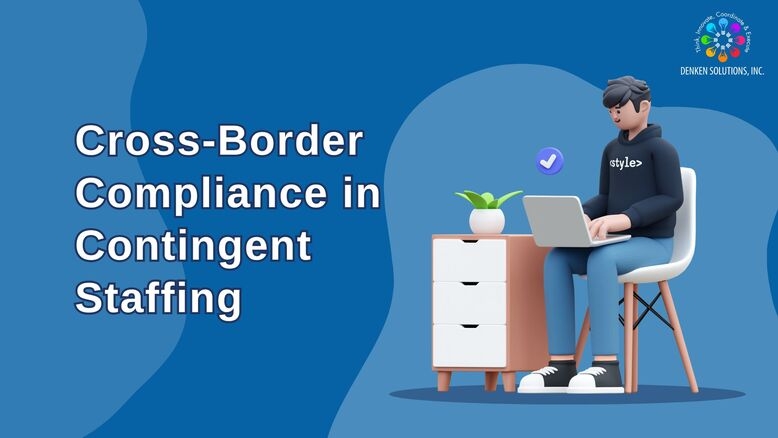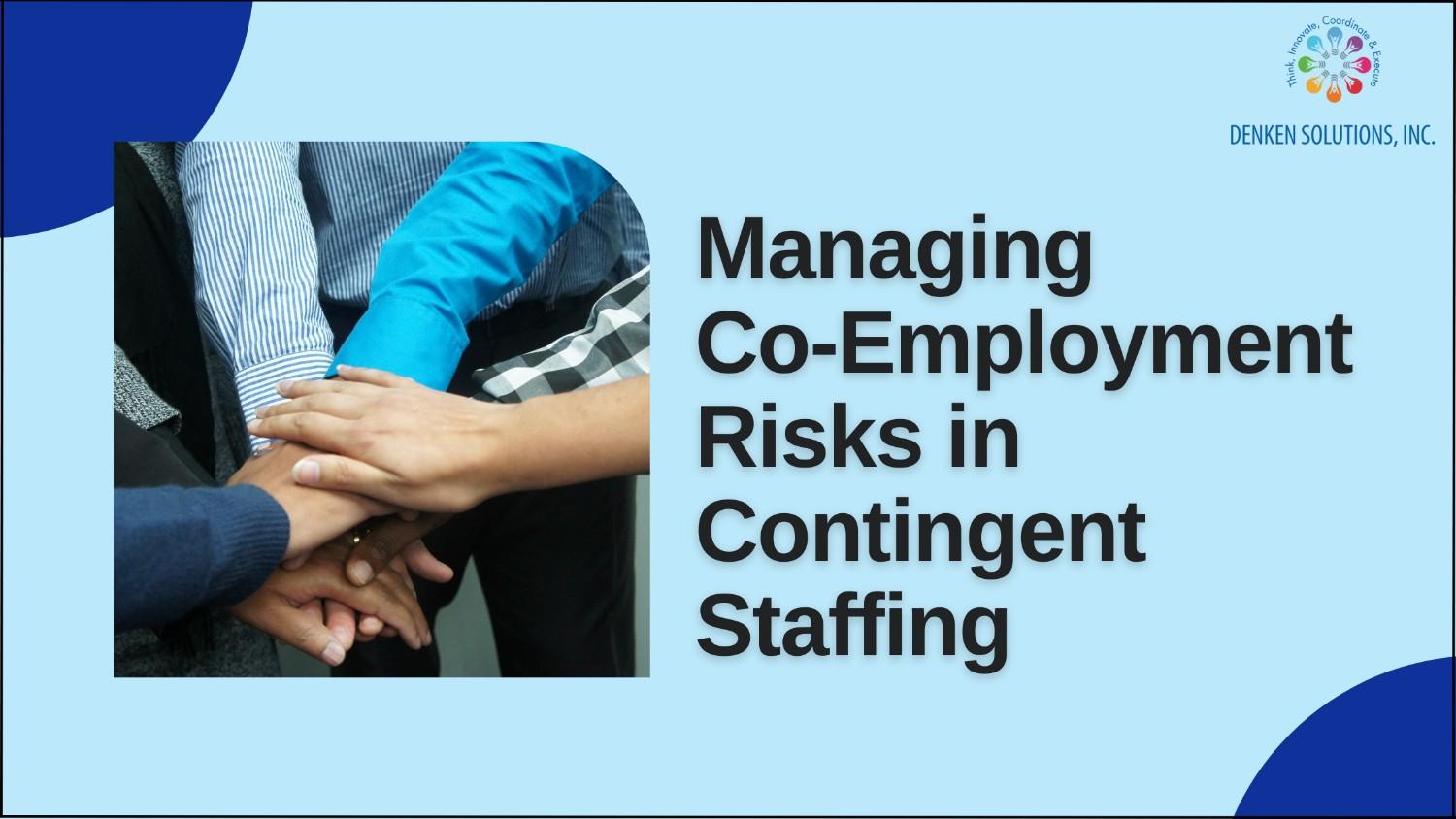Though they are now coming of age and entering the workforce, Generation Z has always been a formidable force. Additionally, there has been a dramatic change in the workforce’s makeup as thousands of Baby Boomers approach retirement age every day. Along with compensation, benefits, incentives, and a transparent approach to contingent workforce compliance, this shift has also impacted what workers expect from their employers in terms of workplace culture, support, and physical workspace.
Gen Z isn’t necessarily working in the same ways as previous generations due to the uncertain economic climate, which includes fears of a recession, and the return of student loan debt payments after a three-year break. Naturally, they are looking for stability. They place a higher priority on profits as well, but they approach the employer-employee relationship with some mistrust.
What is Gen Z?
Gen Z, sometimes referred to as Zoomers or Generation Z, was born between 1997 and 2012.
Common Gen Z character qualities that may manifest in their attitudes, behaviors, and expectations have been shaped by particular factors.
Gen Z, for instance, is:
- Tech-savvy:
Gen Z members, who grew up with cellphones, social media, and the internet, are digital natives. They usually have a lot of connections and are tech-savvy.
- Risk-averse:
Many Gen Z employees began their careers during the COVID-19 outbreak and were kids at the worst of the Great Recession. They or their family may have been impacted by these times of significant economic upheaval, which made them more risk-averse.
- Independent:
Gen Zers are more accustomed to looking for solutions online rather than seeking guidance because the internet has given them access to thousands of years of collective wisdom.
- Competitive:
Gen Z is more competitive when it comes to reaching their career ambitions because they grew up during a recession and witnessed their parents’ struggles. They are prepared to put in a lot of effort to advance their careers, but they also want to be appreciated and acknowledged for their efforts.
- Open-minded:
Gen Z has been formed by important cultural and political turning points. Gen Z is a fairly open-minded group because they grew up in a diversified and connected global world.
Why Gen Z Is a Natural Fit for Contingent Work?
Gen Z is particularly well-suited for contingent job arrangements like freelancing, contract roles, and project-based gigs because of their entrepreneurial drive, digital proficiency, and inclination for flexibility.
- Platform-native and tech-aware:
Gen Z is naturally accustomed to digital tools, virtual collaboration, and asynchronous communication, essential elements of contemporary contingent work, having grown up with cellphones, social media, and remote learning. They are digital creators as well as tech users, and they swiftly pick up new tools and processes.
- Prioritizes adaptability over permanence:
In contrast to other generations that placed more importance on long-term job stability, Gen Z recruitment strategies value freedom, flexibility, and work-life balance. They can select when, where, and how they work with contingent labor, which fits with their desire to combine their professional goals with side projects or personal passions.
- Experience-driven and entrepreneurial:
Gen Zers frequently have numerous sources of income and think like entrepreneurs. They view contract work as a chance to expand their skill set more quickly than they could in a single full-time position, acquire a variety of experiences, and develop a wide portfolio. They are more receptive to project-based activities that provide learning and impact because of this approach.
- Purpose and autonomy:
They want to contribute to worthwhile causes and are inspired by work that has a purpose. They can feel ownership over their contributions without being constrained by inflexible structures in contingent roles, particularly ones that provide creative freedom or are consistent with their values.
Challenges in Recruiting Gen Z for Contingent Roles
Despite Gen Z’s strong propensity for freedom and flexibility, hiring them for contingent positions isn’t always easy. Engaging this generation effectively requires an understanding of their values, communication preferences, and expectations.
- Sensation of unpredictability:
Many Gen Z job searchers still desire stability, even though they are receptive to flexible employment arrangements, particularly in uncertain economic times. Because contingent employment is sometimes perceived as missing long-term career potential, steady compensation, and job security, candidates seeking more structured opportunities may be turned off by it, particularly when it is offered through staffing platforms.
- Lack of support and benefits:
Conventional full-time positions frequently include growth programs and paid time off. Since most contingent jobs don’t provide these benefits, Gen Z workers, who are becoming more aware of financial safety nets and mental health, find them less tempting.
- Fears of exploitation:
Stories of underpaid or overworked freelancers are among the ethical concerns in the gig economy that Gen Z is well aware of. This socially conscious generation may quickly disengage from contingent jobs if they seem transactional or exploitative.
- Restricted opportunities for career advancement:
Gen Z looks for every chance to learn and progress. It might be challenging for candidates to understand how temporary work fits into their long-term professional objectives because many contingent positions lack a defined mentoring program or career path.
- Communication style mismatch:
Gen Z likes instantaneous, casual conversation and prompt feedback. Long wait times, generic outreach, or excessively formal communication in traditional hiring procedures might make them seem antiquated or impersonal, which can drive away candidates.
Strategies to Attract Gen Z to Contingent Roles
Gen Z contributes vitality, inventiveness, and flexibility to the workforce, but luring them to contract positions calls for a strategic, contemporary strategy. This generation wants transparency, advancement, flexibility, and purpose in addition to a job. Here’s how businesses and employment agencies can successfully hire Gen Zers for freelancing or project-based jobs:
- Lead with impact and purpose:
Gen Z is a very values-based generation. They want to feel that the work they do makes a difference. Make sure to highlight the project’s influence on the community, innovation, or global reach when selling contingent roles.
- Encourage flexibility as a benefit rather than a drawback:
Freedom of time, place, and job path is important to this generation. Present contingent positions as a chance to manage their work-life balance or acquire a variety of experiences without being bound by long-term obligations.
- Communicate where Gen Z is active:
Don’t bother with long job boards. Gen Z is active on YouTube, LinkedIn, Instagram, and TikTok. Share job openings, real-life content, and endorsements from other Gen Z contractors using short-form video, accessible language, and genuine branding.
- Provide opportunities for microlearning and development:
Gen Z is eager to learn, even in temporary positions. Provide mentorship check-ins, online course access, short learning modules, or an introduction to new technologies and platforms. Demonstrate how the position will enhance their resume in measurable ways.
- Be open and honest about compensation, scope, and expectations:
Gen Z demands clarity and honesty. Be clear about the timetable, deliverables, contract terms, and hourly rates. Steer clear of ambiguous terminology. Trust increases engagement, and transparency increases trust.
- Emphasize the integration of work and life:
Gen Z cares about their well-being. Emphasize how their lifestyle is supported by contingent roles, whether it is through creative hobbies, preventing burnout, or traveling while working. Use async work policies, flexibility, or mental health resources to support this.
How Denken Solutions shapes the future of contingent hiring for Gen Z:
Denken Solutions is aware that finding Gen Z talent involves more than just filling positions; it also entails creating fulfilling, forward-thinking work environments that speak to the aspirations and values of a new generation.
In the workplace, Gen Z contributes new ideas, digital agility, and a strong sense of purpose. As a staffing partner, we assist companies in realizing this potential by rethinking contingent employment in a way that strikes a balance between freedom and support, flexibility and structure, and gig-style work and possibilities for career advancement.
Conclusion:
It’s obvious that traditional hiring practices won’t work as Gen Z continues to transform the modern workforce, particularly for contingent employment. This generation contributes a special fusion of entrepreneurial spirit, digital proficiency, and values-based decision-making. They are searching for meaningful experiences, flexibility, and a sense of purpose in addition to jobs.
Companies need to move away from transactional gig offerings and toward purposeful, people-first engagements if they want to successfully recruit and retain Gen Z in contingent roles. This entails communicating in a way that resonates, providing chances for learning and growth, and leading with transparency.



